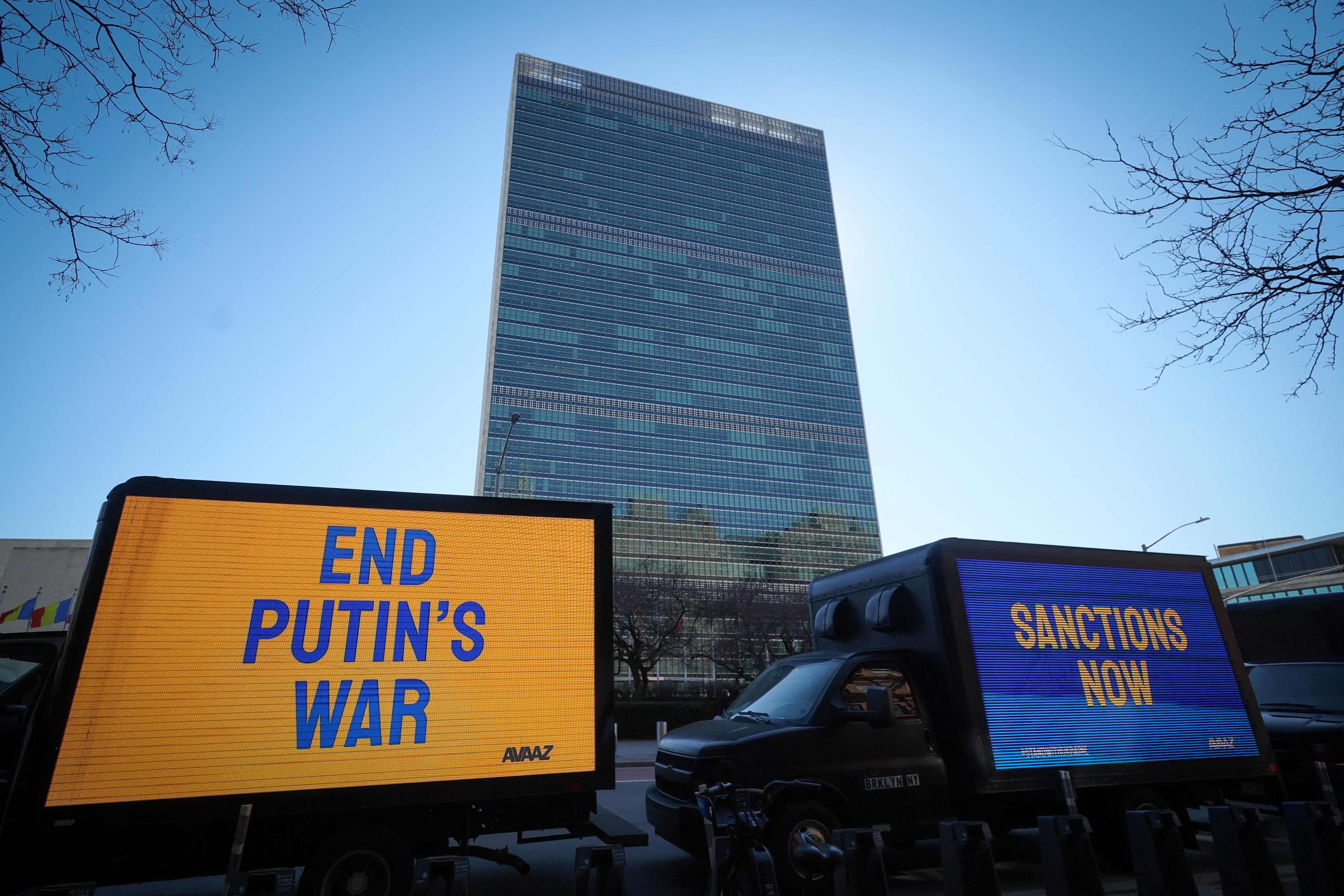Maybe you’ve heard that debate is underway at the United Nations about how to respond to Russia’s invasion … and you’re wondering what’s the point ... because you’re remembering that Russia, a permanent member of the Security Council, can veto just about anything it doesn’t like. Like any move to condemn Russia for invading Ukraine, for example. But this is the importance of UN General Assembly Resolution 377(V). Dating from 1950, this so-called Uniting for Peace Resolution offers a way past the veto. It stipulates that, in the case of an act of war, the General Assembly shall “consider the matter immediately with a view to making recommendations to members for collective measures.” In other words, the GA can vote to essentially override Russia’s veto. And since the GA voted in 2014 that the Russian seizure of Crimea violated Ukraine’s territorial integrity, the body will probably take a similar view of Russia’s all-out war on the rest of Ukraine. The GA could order a UN investigation, call for more sanctions on Russia, or even move to kick Russia out of some UN bodies. Whether any of this will amount to more than powerful symbolism or add anything meaningful to the ongoing international response to Russia’s invasion is another matter.
- Will UNGA act? A world of knock-on challenges as global leaders meet. - GZERO Media ›
- Why is Russia on the UN Security Council? - GZERO Media ›
- Why is Russia on the UN Security Council? - GZERO Media ›
- Why is Russia on the UN Security Council? - GZERO Media ›
- UN official: Security Council Is “dysfunctional” - but UN is not - GZERO Media ›
- Explaining: the history of the UN headquarters - GZERO Media ›
More For You
It's one of the few sources Americans across the political spectrum still rely on.
Most Popular
Think you know what's going on around the world? Here's your chance to prove it.
America’s new National Security Strategy confirms what Europeans have feared for months: Washington now sees a strong, unified European Union as a problem to be solved, not an ally to be supported.
Sports inspire greatness, determination, and resilience — both on and off the field. Bank of America is proud to celebrate the achievements of and uplift communities through the power of sports. Learn more about how Bank of America supports athletes in life and in the game.
